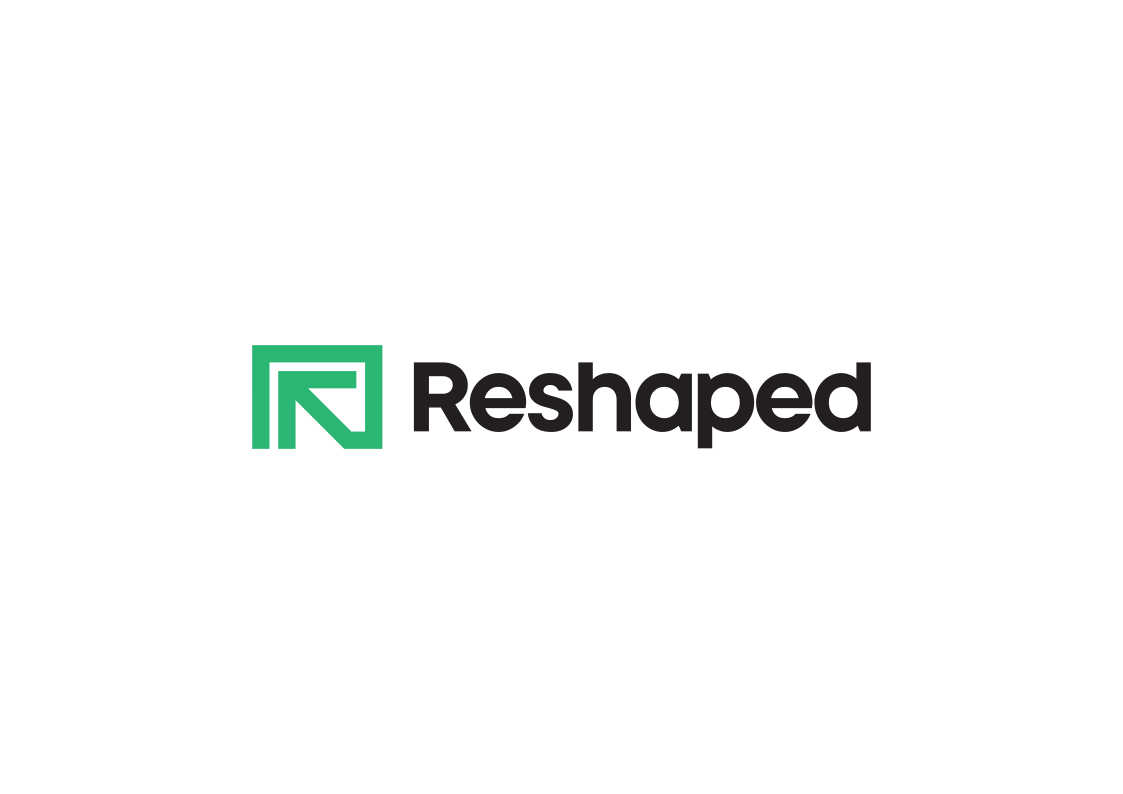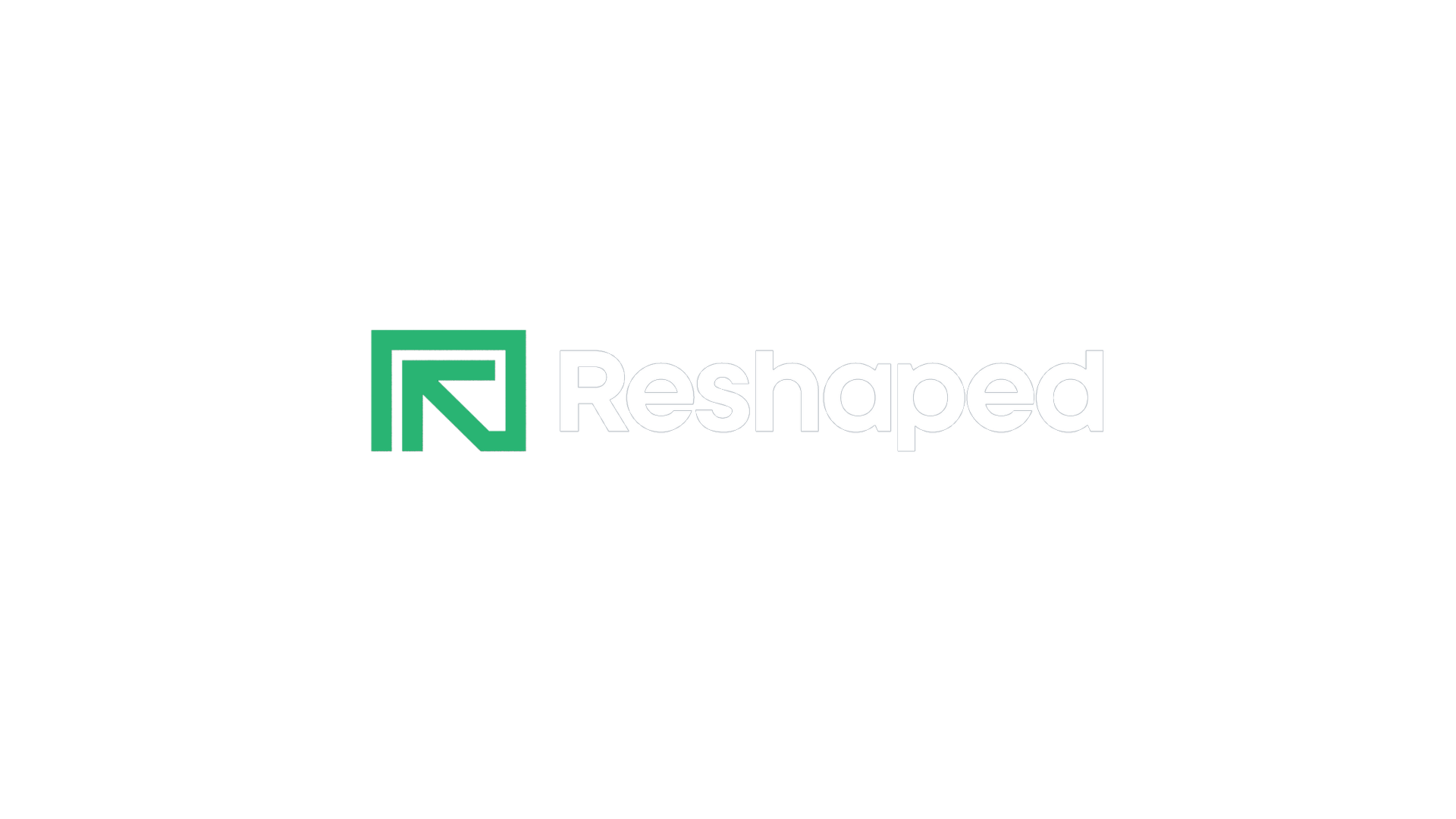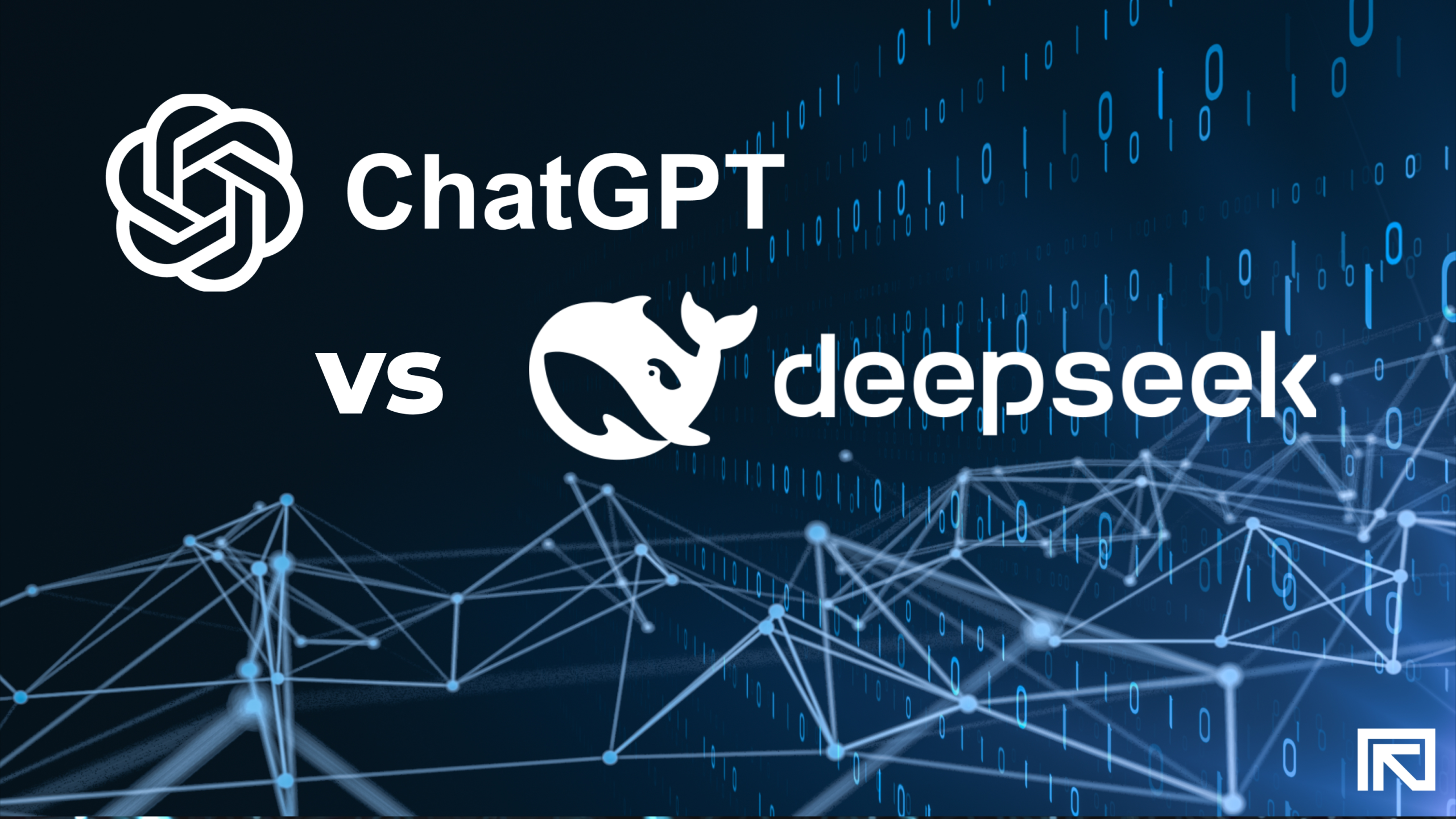If you’ve spent any time exploring AI tools lately, you’ve probably heard of ChatGPT. It’s the gold standard when it comes to conversational AI. But recently, a new player called DeepSeek has started making headlines. Why? Because it promises intelligence while being completely free and open-source.
That claim got my attention. So, I decided to spend some time testing both, running the same prompts, creative tasks, and research queries to see how DeepSeek stacks up against ChatGPT in real-world use.
At first glance, both tools seem similar: they can answer your questions, brainstorm ideas, write essays, and even code. But after a few hours of testing, it became clear that the two are built with different priorities in mind.
- ChatGPT aims for polished, reliable, and detailed responses.
- DeepSeek focuses on being accessible, offering free use for individuals and low-cost APIs for developers.
Still, price isn’t everything. The real question is: which one gives you the better experience?
Let’s break down the differences.

DeepSeek vs ChatGPT: Quick Comparison
| Feature | ChatGPT | DeepSeek |
| G2 Rating | 4.7 / 5 | 4.1 / 5 |
| AI Models | Free: GPT-5 Paid: GPT-5 Thinking, GPT-5 Pro, Sora (for video generation) | DeepSeek V3 and DeepSeek-R1 |
| Best For | Creative writing, coding, general knowledge, real-time web search | Research, logical reasoning, open-source development |
| Open-Source | Mostly proprietary, with limited open-weight models (gpt-oss-120b, gpt-oss-20b) | Fully open-source, available for local deployment |
| Security | Cloud-based, SOC 2 Type 2, GDPR & CCPA compliant | Servers based in China; supports private hosting with open models |
| Creativity & Conversation | Excellent storytelling and tone control | Nearly as smooth, sometimes less nuanced |
| Coding & Debugging | Extremely capable (especially GPT-5 Pro) | Strong performance with DeepSeek Coder |
| Speed & Reliability | Fast, but can hit usage limits | Very quick, though uptime can fluctuate |
| Supported Languages | Around 60 | Over 100 (best in English and Mandarin) |
| Pricing | Free tier, Plus ($20/mo), Teams ($25/user/mo), Pro ($200/mo) | 100% free to use |
DeepSeek vs ChatGPT: Pricing, usability, and real-world performance
Let’s be honest, one of the biggest reasons DeepSeek caught everyone’s attention is its price tag (or lack of one). It’s completely free to use, while ChatGPT has both free and paid tiers. But after testing both side by side, I found that what you get for “free” can feel very different depending on which tool you use.
Price and value: Is DeepSeek really the cheaper choice?
Yes, DeepSeek is free and that’s its biggest selling point. You can chat with it as much as you want without running into limit. But there’s a catch, you’re also giving up some of the advanced features that make ChatGPT stand out.
Even ChatGPT’s free version includes access to web search, image generation, voice interaction, and multimodal understanding (the ability to analyze text, photos, and even files together). DeepSeek, on the other hand, mostly sticks to text. It’s great for simple questions and research, but if you want it to generate visuals or respond with richer context, it falls short.
Now, if you’re thinking about the paid versions of ChatGPT, that’s where it gets interesting.
- ChatGPT Plus ($20/month) gives you access to GPT-5 much faster, smarter, and more capable.
- ChatGPT Teams ($25/user/month) adds collaboration and memory tools for teams or small businesses.
- ChatGPT Pro ($200/month) unlocks everything, such as advanced memory settings and access to Sora (its AI video generator).
When I tested DeepSeek’s API pricing for developers, though, it’s unbelievably affordable, a fraction of OpenAI’s cost. A million tokens on DeepSeek V3 costs roughly $0.07 for input and $1.10 for output, compared to $2 and $8 on OpenAI’s flagship GPT-4.1 API. So if you’re a developer running a large-scale project or a startup trying to save on AI expenses, DeepSeek is the clear winner there.
Winner (for individuals): ChatGPT
Winner (for developers): DeepSeek
Platforms and accessibility
Both DeepSeek and ChatGPT work perfectly well on the web and have mobile apps for Android and iOS. But ChatGPT pulls ahead when it comes to ecosystem reach. It’s available as a desktop app (for macOS and Windows) and even integrates directly with tools like Microsoft Copilot, Chrome extensions, and third-party productivity apps.
DeepSeek, on the other hand, still feels like it’s catching up. It doesn’t yet have an official desktop client, and many of its apps are community-made integrations rather than official releases. While those work fine, they’re not always stable or updated regularly.
One advantage DeepSeek has, though, is its open-source flexibility. If you’re a developer, you can deploy it locally or customize it to fit your use case, something ChatGPT doesn’t let you do without going through OpenAI’s APIs.
Winner (for general users): ChatGPT
Winner (for tech enthusiasts & developers): DeepSeek

Which AI model feels smarter?
When you compare DeepSeek’s V3 model to ChatGPT’s GPT-5, the difference in polish is obvious. ChatGPT feels more natural, handles context better, and can understand subtle instructions. DeepSeek’s reasoning is solid, especially when it comes to logic and problem-solving, but it sometimes struggles with creative tasks or tone consistency.
DeepSeek also offers specialized versions like DeepSeek Coder (for programming) and DeepSeek Math, while ChatGPT’s pro tier bundles advanced reasoning and multimodal capabilities into one unified model.
To test how naturally each handles real-world communication, I asked both to write an apology email for missing a meeting due to a medical emergency at home.
ChatGPT’s response felt calm, polished, and professional. It structured the email like someone who’s written hundreds of corporate apologies before. The tone was empathetic yet balanced, avoiding overexplanation or emotional overkill. What stood out was how naturally it understood tone management: it offered to make the message softer or more personal depending on the boss’s temperament, almost like a writing coach who knows when to push empathy and when to keep it crisp. That level of emotional nuance shows how deeply tuned ChatGPT is to context and communication dynamics.
DeepSeek, on the other hand, came across as very structured, almost like an assistant following a communication template. It offered multiple options (concise, detailed, or solution-focused), which is helpful if you prefer control and variation in output. However, its tone leaned more procedural than conversational. It efficiently covered all the key points: apology, reason, and reassurance. But it lacked the natural flow and warmth that makes a message feel genuinely human.
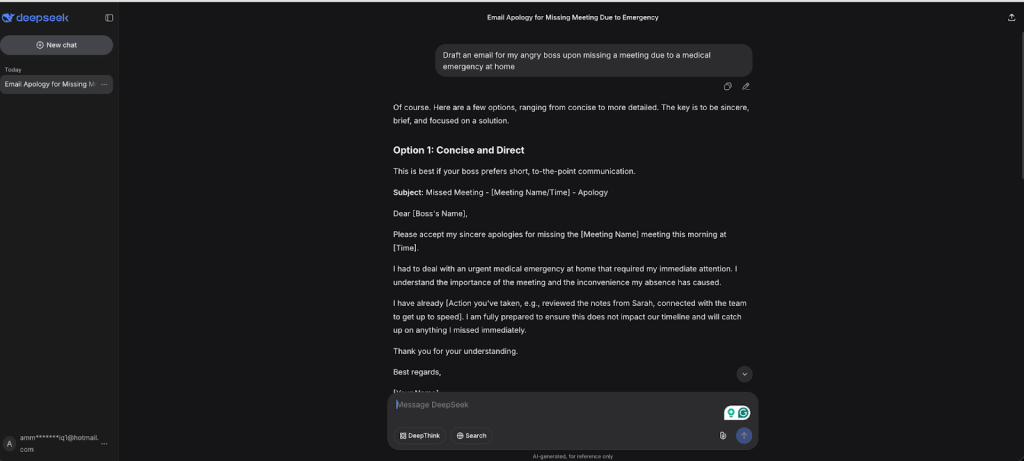
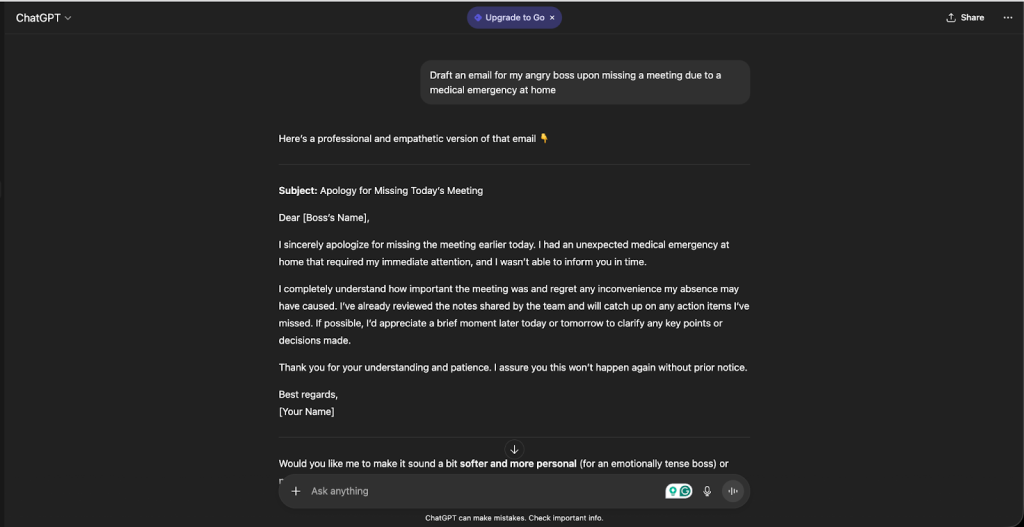
Winner: ChatGPT
Web search and real-time information
When it comes to staying updated, both DeepSeek and ChatGPT can search the web, but how they handle it feels very different in practice.
In my testing, ChatGPT’s browsing experience felt more natural and polished. When I asked it about the latest AI tools or recent sports results, it gave me clean, well-cited answers, even showing the source icons and small snippets from each site. It also includes images and clickable article previews at the end of responses, which makes research feel almost effortless.
DeepSeek, on the other hand, does provide current data, but the experience feels a bit rough around the edges. The sources appear as numbered. It doesn’t show images or article previews, which makes it feel more like an early research assistant than a polished search companion.
One thing I did appreciate, though, was how quick DeepSeek’s search results were. It consistently delivered concise summaries faster than ChatGPT, which occasionally takes a few extra seconds to generate detailed responses.
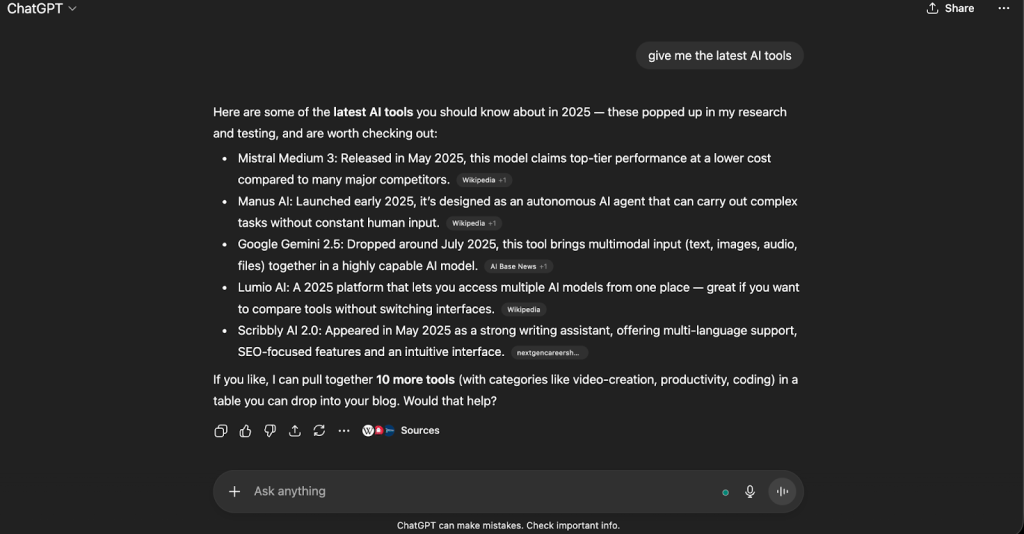
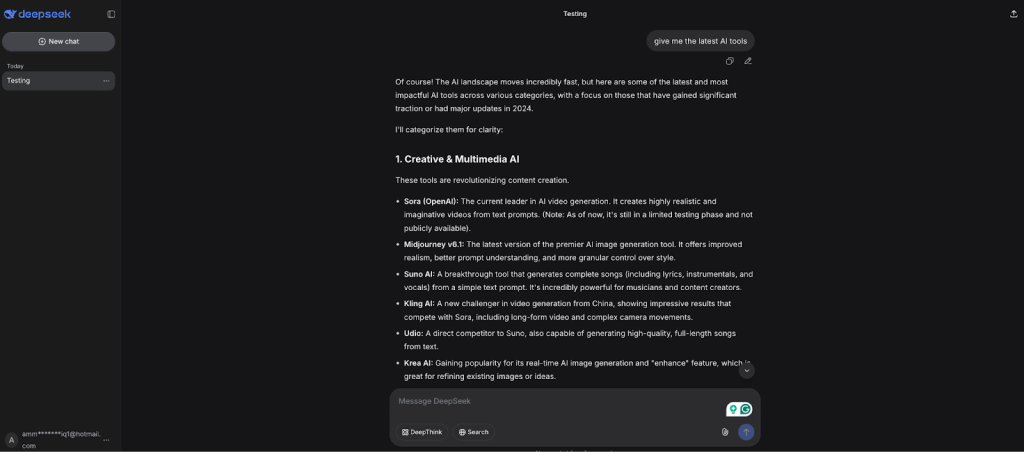
Winner: ChatGPT for accuracy and presentation
DeepSeek earns points for speed
Deep research and long-form generation
If you need help with serious research, think 10-page reports, market analysis, or essay writing, ChatGPT is in a different league. Its deep research mode can generate reports that cite dozens of reputable sources. It also knows how to structure long-form writing: intro, body, citations, summaries, without you needing to hold its hand.
When I tried the same on DeepSeek, it handled short explanations well but hit limits when I pushed for length or complexity. For example, when I asked both to summarize a set of climate studies, ChatGPT generated a 5-page overview with structured citations and in-text references. DeepSeek produced a one-page summary that lacked citation details and occasionally repeated itself.
If you’re a student, writer, or professional researcher, ChatGPT’s deep research capability is unmatched right now. DeepSeek might catch up, but as of 2025, it’s not quite there.
Winner: ChatGPT
Image generation
If creativity is your thing, this is where ChatGPT really flexes its muscles. Its image generation feature isn’t just good, it’s consistent. I asked both tools to “create an image of an Asian woman working from home with a cup of tea on the side and some table plants”.
ChatGPT gave me a crisp, detailed image. DeepSeek, however, replied with a polite “I currently don’t support image generation.”
So, for visual content creators, ChatGPT wins by default. You can even use it to create storyboards, comic panels, or brand mockups, all within the same chat window. It’s not perfect, but it’s reliable.

Image created from ChatGPT
Winner: ChatGPT
Video generation
One of ChatGPT’s most exciting new tools is Sora, its AI video generator. It’s still evolving, but it already produces short, realistic clips that look surprisingly cinematic if you spend time refining your prompts.
For instance, I asked Sora to generate “a short video of a coffee cup filling itself as the morning sun hits a window.” It created a smooth, high-quality clip with natural light and movement. DeepSeek, meanwhile, has no video generation feature yet. You’d need to integrate it with a third-party tool if you want similar results.
If you’re a content creator, marketer, or just curious about AI visuals, ChatGPT’s video generation is a game-changer.
Winner: ChatGPT
File processing and recognition
This was one of the more practical tests I ran. I uploaded PDFs, images, and a couple of scanned manuals to both chatbots to see how well they could interpret and summarize them.
ChatGPT easily recognized everything, including text from images and diagrams. It even identified technical components in photos, like a cooling fan in a PC build. It also supported multiple file uploads in one go, making it easy to reference several documents within a single conversation.
DeepSeek could process text-based files reasonably well but didn’t support image-based recognition. Plus, it forced me to upload files one at a time, which slowed things down. It’s good for basic text extraction but lacks the sophistication that ChatGPT now offers through GPT-5’s multimodal capabilities.
Winner: ChatGPT

Creative writing and storytelling
This one surprised me, DeepSeek is actually pretty strong here. When I asked both models to write a short story about “a truck driver who discovers an old map leading to hidden treasure,” ChatGPT’s version read like a movie script, emotional, well-paced, and vivid. DeepSeek’s story, though shorter, had great structure and logical flow.
That said, ChatGPT still wins on creativity and emotional tone. It can mimic styles, create metaphors, and add human-like flair in ways DeepSeek still struggles to match. But if you just want something factual and straightforward, DeepSeek holds its own.
Winner: ChatGPT, but DeepSeek puts up a solid fight
Final verdict
So, DeepSeek vs ChatGPT: who comes out on top?
If you’re after a polished, feature-rich experience, ChatGPT wins hands down. It’s faster, smarter, and much more versatile..
But if you’re a developer or budget-conscious user, DeepSeek deserves a look. It’s free, open-source, and affordable to scale through API, perfect for techies who like to tinker and customize.
My take?
- For creators, professionals, and everyday users: go with ChatGPT.
- For developers and AI hobbyists: try DeepSeek, it’s the underdog that’s improving fast.
Both tools are remarkable, but as of 2025, ChatGPT remains the more complete, reliable, and user-friendly AI assistant.
